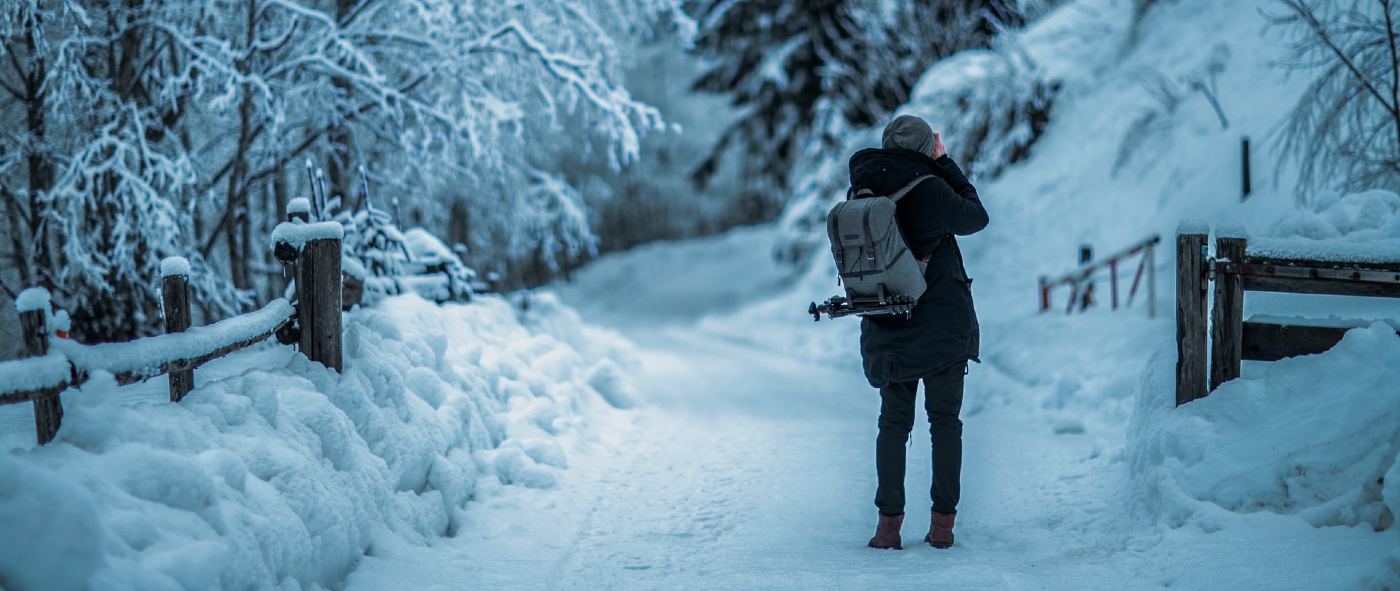Wintertime weather, holidays, and a pandemic lockdown can make routines difficult, but practicing mindfulness can offer a solution, and be done in very simple forms.
The year has been a real humdinger for some and a tragedy for others, and using mindfulness—the direct mental effort to make yourself present in each passing moment, can help remind so many of us why the holidays are a favorite time of the year.
If one collects enough psychological information, using mindfulness throughout the week—throughout the season, might make us more resilient to whatever life through in our paths.
Walking
Even though the thermometers are reading low, walking is not only a great way to practice mindfulness, but it gets you out of doors—which every psychologist worth their salt would explain is great for your mental health.
During the holiday season and wintertime, it’s even more important for several reasons.
- Reduced daylight hours lead to a reduction in the natural absorption of vitamin D from UV light. Vitamin D is one of the most important biochemicals for the immune system and fighting off viruses.
- Exposure to cold increases the brain’s production of norepinephrine, a behavioral chemical that can make you feel elated and excited.
- Exposure to trees, sky, the stars, and nature has been shown time and time again to help improve mental well-being.
Walking this holiday season allows you to capture all of these benefits as well as offering a great opportunity to practice mindfulness. In Europe, it’s quite common for married couples, friends, or dog moms/dads to take a walk after a meal—particularly dinner.
Several studies have looked at the effects of a post-dinner walk on things like nocturnal glycemia, type-2 diabetes, and gastro reflux. All found that these various symptoms were improved with even just a 20-minute moderate-intensity walk after an evening meal.
“Concentrate on the air as it fills your lungs and expels into the atmosphere. Notice the breath of your exhale becoming one with your surroundings,” advises Veronika Tait, Ph.D. writing for Psychology Today.
Veronica adds that studies have shown walking in forests or in close sight of trees has been shown to lower levels of stress and anxiety.
“Picture yourself expanding into the vastness and reflect on the changing seasons. Ponder what it means to be at the mercy of the sky each day, recognizing our powerlessness over Mother Nature,” she adds.
There’s no better time than December and winter to recognize our powerlessness over nature.
If you’re not the kind of person who likes the cold, a new attitude about winter could be only a matter of how you frame it. Kari Leibowitz is an American psychologist studying Norwegians’ attitudes towards their long sunless winter above the Arctic Circle.
“Most people don’t realize that their beliefs about winter are subjective,” Leibowitz tells the Guardian. “They feel like they’re just someone who hates the winter and there’s nothing they can do about it… But once you put it in people’s heads that mindsets exist, and that you have control over your mindset—I think that that’s tremendously powerful.”
READ: Dreading a Dark Winter Lockdown? Think Like a Norwegian
After accruing all those benefits, there’re still more waiting for you when you finish your walk.
To drive the cold winter away
Another good time to practice mindfulness is after your walk.
Slow down as you approach your door and say out loud how grateful you are for the shelter that keeps you safe from the cold. Once inside, take a moment to feel the warmth of your home’s air reaching the parts of you that are most cold like the nose, lips, and ears.
You know that throbbing feeling when a very cold body part is rapidly warming? Focus on that while you pour yourself a cup of herbal tea, and try and pay attention to the smell and the steam from the water as it enters your cup.
Sit down and drink your tea without moving until it’s finished. Here’s why:
- Many herbal teas have therapeutic effects that can be very beneficial for staving off sickness, bettering sleep quality, and helping de-stress after a long day.
- A cup of tea is about as long as it takes to finish a short mindfulness routine. It’s been shown, and the HeadSpace app has made a fortune from it, that just 5-8 minutes of mindfulness or meditation is enough to start experiencing the beneficial effects.
- Use your fanciest cups, saucers, and other tea paraphernalia. Social psychologist Dan Ariely demonstrated, according once again to Veronika Tait, that “when the coffee ambience looked upscale…the coffee tasted upscale.” “Participants rated the taste of their coffee higher if the condiments were presented in fancy containers versus paper cups,” added Tait.
CHECK OUT: Feeling Stressed? Iceland is Broadcasting People’s Yells of Frustration to Their Scenic Wilderness
Whatever your winter, lockdowns, or holidays look like this year, don’t let stress get in the way of a nice brisk walk and a hot cup of tea, all with 8-10 minutes of focusing on your place in nature, and the things you’re thankful for.
PASS On The Positivity And Share These Holiday Tips Friends On Social Media…




















